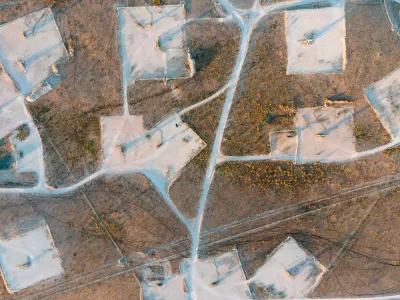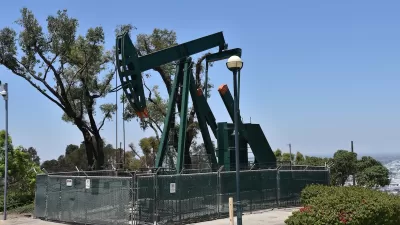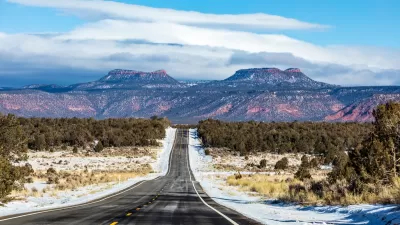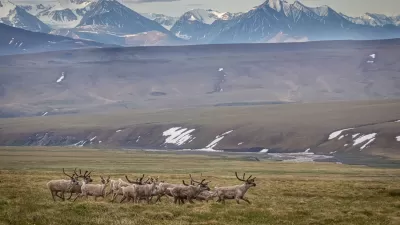An update to federal regulations raises minimum bonding to limit orphaned wells and ensure cleanup costs are covered — but it still may not be enough to mitigate the damages caused by oil and gas drilling.

A new rule from the U.S. Department of Interior will make oil and gas drilling on public lands more expensive, reports Nick Bowlin in High Country News.
“The reform includes a jump in the amount of money that drilling companies must put forward to ensure cleanup of their wells. It also raises the royalty tax rate that operators pay on the minerals they extract on public land, which had not changed in more than a century,” Bowlin adds.
The rule is designed to reduce wasteful speculation and make companies responsible for the costs of environmental cleanup, according to Interior Secretary Deb Haaland. The rule raises minimum bonds for oil and gas leases on public lands from $10,000 to $150,000 — but “Despite these increases, the new bonding levels are unlikely to cover the complete cost of cleaning up the more than 90,000 unplugged wells overseen by the Bureau of Land Management.”
Under the new rule, companies will pay a higher royalty tax rate on profits from extraction.
While many environmentalists praise the changes, some say updating rules for oil and gas extraction is not enough to reduce fossil fuel dependence and extraction in the long term. According to Gladys Delgadillo, a climate campaigner at the Center for Biological Diversity, “Updating oil and gas rules for federal lands without setting a timeline for phaseout is climate denial, pure and simple.”
FULL STORY: Drilling for oil on public land is about to cost a lot more

Alabama: Trump Terminates Settlements for Black Communities Harmed By Raw Sewage
Trump deemed the landmark civil rights agreement “illegal DEI and environmental justice policy.”

Planetizen Federal Action Tracker
A weekly monitor of how Trump’s orders and actions are impacting planners and planning in America.

Why Should We Subsidize Public Transportation?
Many public transit agencies face financial stress due to rising costs, declining fare revenue, and declining subsidies. Transit advocates must provide a strong business case for increasing public transit funding.

Understanding Road Diets
An explainer from Momentum highlights the advantages of reducing vehicle lanes in favor of more bike, transit, and pedestrian infrastructure.

New California Law Regulates Warehouse Pollution
A new law tightens building and emissions regulations for large distribution warehouses to mitigate air pollution and traffic in surrounding communities.

Phoenix Announces Opening Date for Light Rail Extension
The South Central extension will connect South Phoenix to downtown and other major hubs starting on June 7.
Urban Design for Planners 1: Software Tools
This six-course series explores essential urban design concepts using open source software and equips planners with the tools they need to participate fully in the urban design process.
Planning for Universal Design
Learn the tools for implementing Universal Design in planning regulations.
Caltrans
Smith Gee Studio
Institute for Housing and Urban Development Studies (IHS)
City of Grandview
Harvard GSD Executive Education
Toledo-Lucas County Plan Commissions
Salt Lake City
NYU Wagner Graduate School of Public Service





























